News
-
 Animals
AnimalsGazing deeply into your dog’s eyes unleashes chemical attraction
Dogs and people gazing into each other’s eyes give each other a bond-strengthening rush of oxytocin.
By Susan Milius -
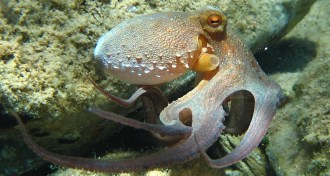 Life
LifeOctopuses move with uncoordinated arms
An octopus crawls unlike any other animal. Mimicking the cephalopod’s control over its movements may lead to more agile robots.
-
 Health & Medicine
Health & MedicineSame mutations can show up in tumors, healthy tissues
Analyzing samples of healthy and tumor tissues could pinpoint which mutations are driving cancer and help develop better-targeted treatments.
By Nathan Seppa -
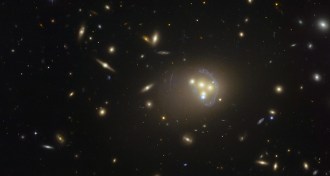 Astronomy
AstronomyGalactic split provides clue to dark matter mystery
An oddly divided galaxy may provide the first evidence that dark matter particles interact through a force other than gravity.
By Andrew Grant -
 Plants
PlantsFrom lemons to kumquats, roots of citrus variety dug up
Citrus fruits’ lineage is traced through chloroplast DNA, revealing both maternal and paternal heritage.
-
 Health & Medicine
Health & MedicineGenes may influence placebo effect
Certain gene variants may predispose people to experience the placebo effect, which may have implications for clinical trials and personalized medicine.
-
 Environment
EnvironmentOil from BP spill probably sprayed out in tiny drops
Oil that gushed from the well in the 2010 Deepwater Horizon spill may have shattered into tiny droplets, with high pressures doing the work of dispersants.
By Beth Mole -
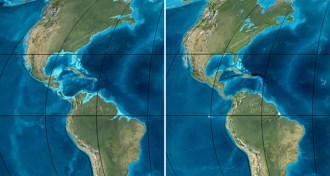 Earth
EarthMeeting of the Americas came early, study suggests
Volcanic crystals thought to have formed in Panama and found in an ancient Colombian streambed hint that North and South America may have met up roughly 10 million years earlier than once thought.
-
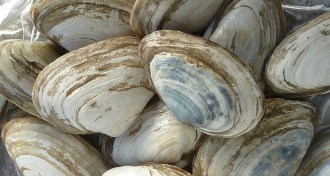 Genetics
GeneticsContagious cancer found in clams
A soft-shell clam disease is just the third example of a contagious cancer.
-
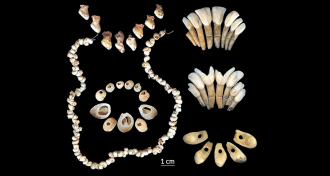 Anthropology
AnthropologyBeads suggest culture blocked farming in Northern Europe
Baltic hunter-gatherers blocked farming’s spread from south.
By Bruce Bower -
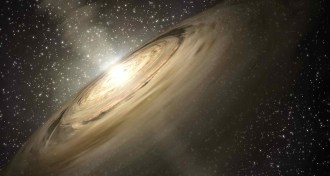 Astronomy
AstronomyCyanides around young star signal complex organic chemistry
Abundances of cyanide compounds around a young star match those found in comets in our solar system.
-
 Life
LifeIt’s true: Butterfly spots can mimic scary eyes
Contrary to recent studies, the old notion that butterfly wing eyespots evoke predator eyes may not be so old-fashioned after all.
By Susan Milius